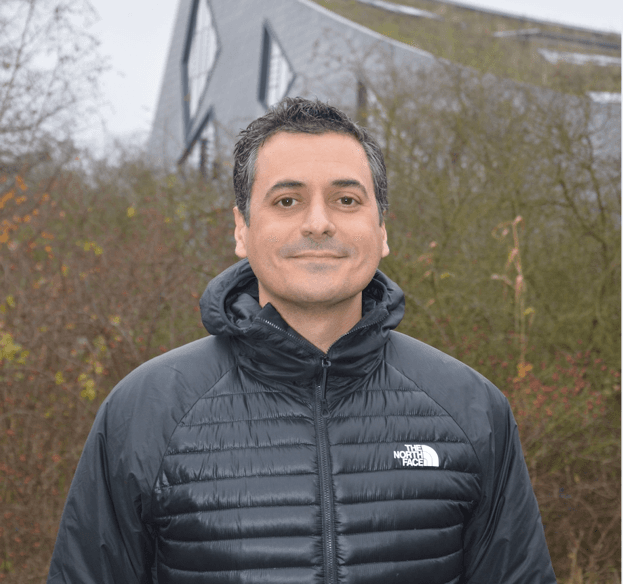Antonio J. Castro
Principal Investigator
Antonio holds a PhD in Ecology (University of Almeria 2009) and is a Catedrático de Universidas (Full Professor) of Ecology at the University of Almería. He is an ecologist by training and a sociologist by passion—ultimately, a social-ecological systems scientist. His research centers on understanding and addressing conservation conflicts, with a broader interest in the complex and evolving relationships between people and nature. He aims to explore the ecological, economic, and psychological dimensions that shape conservation efforts and sustainability outcomes. Since 2024, he leads the Sustainability, Resilience, and Governance of Socio-Ecological Systems Lab (SociECOS Lab). He also serves as an Affiliated Faculty member in the Department of Biological Sciences at Idaho State University, a role I have held since 2018.
His academic journey is international and interdisciplinary. As a Ph.D. student, he conducted research as a visiting scholar at the Laboratorio de Análisis Regional y Teledetección (LART) at the University of Buenos Aires under Dr. José Paruelo (2006–2007). He was later awarded a postdoctoral fellowship at Charles Sturt University in Australia, collaborating with Dr. Gary Luck (2010–2011), followed by a research appointment at VU Amsterdam in the Netherlands with Dr. Peter Verburg (2011–2012). In 2011, he moved to the United States, where he spent over six years. He first worked as a postdoctoral associate at the University of Oklahoma with Dr. Caryn C. Vaughn (2012–2015), before joining Idaho State University as an Assistant Professor (2015–2018), where he founded the SociECOS Lab. Currently, he serves as an Associate Editor for Ecology & Society, People & Nature, and the Journal of Arid Environments. From 2018 to 2022, he was a Lead Author of Chapter 3 of the IPBES Values Assessment, contributing to the development of diverse valuation approaches. He also an active member of the new Society for Social-Ecological Systems (SocSES).
Publications
An inverse reinforcement learning approach to model health-related information popularity on X (Twitter)
2025 – Computing
Where nature is not so green: exploring perceptions of urban nature in a semi-arid city
2025 – Urban Forestry & Urban Greening
Environmental justice gaps in human-wildlife conflict research from a social-ecological systems perspective
2025 – Biological Conservation
Exploring agricultural stakeholders’ mental models of the water-energy-food-ecosystems (WEFE) Nexus: Insights from Mediterranean case studies
2025 – Environmental Science and Policy
Exploring biocultural diversity: A systematic analysis and refined classification to inform decisions on conservation and sustainability
2025 – Ambio
Contributions of Net-Map to sustainability action research
2025 – Current Opinion in Environmental Sustainability
Trade-offs for healthy and sustainable diets in Europe: Social-ecological dynamics in an intensive agricultural system
2025 – Global Food Security
The multifaceted spectra of power − A participatory network analysis on power structures in diverse dryland regions
2025 – Global Environmental Change
Leveraging agrobiodiversity for sustainable transition in greenhouse-based intensive agriculture across Mediterranean drylands
2025 – Journal of Arid Environments
Participatory mapping of marine ecosystem services in the Cabo de Gata-Níjar Natural Park (Spain)
2025 – Ocean & Coastal Management
Research Lines
Valuation and mapping of ecosystem services forhuman wellbeing
Socio-Ecological systems science for conservation conflict resolution
Integrating Ecological and Cultural Values in Biocultural Diversity Assessment
Urban Biodiversity for Climate Change mitigation and adaptation
Sustainability and governance of agri-food systems
Projects
Reconciling Food Systems Sustainability and Biodiversity Conservation in Multifunctional Protected Areas
2025–2028 · Ongoing
Boosting Nexus Framework Implementation in the Mediterranean
2023–2025 · Completed
Science in Action: Intersecting Pathways to the SDGs across Scales in the Drylands (XPaths)
2021–2023 · Completed
Restore Desertified Areas with an Innovative Tree Growing Method Across the Mediterranean Border to Increase Resilience
2016–2020 · Completed
Contribution of Marine Ecosystem Services in Protected Natural Areas to Human Well-being (ECOSER)
2020–2020 · Completed
Overcoming Barriers to Implementing an AI-Based Pest Early Warning Network in Greenhouses for Climate Change Adaptation
2024–2028 · Ongoing
Evaluating Biocultural Diversity and Socio-Ecological Vulnerability for the Conservation of Rural Areas in Spain (EmBraCe)
2023–2027 · Ongoing
FOOD – Costing and Internalisation of Externalities for System Transition
2022–2026 · Ongoing
